Recent Blog Posts
Can I Get Rid of Credit Card Debt by Filing for Bankruptcy?
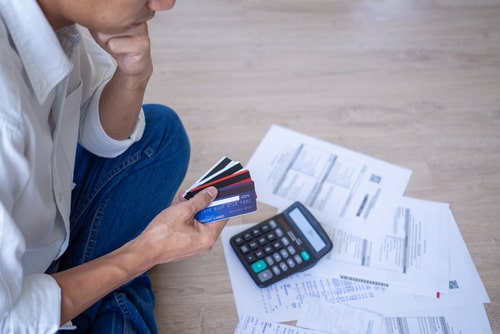 Debt can be one of the most stressful problems in a person's life. People who owe a lot of money often feel as though they are stuck in a revolving cycle of debt, fines, and fees that they can never get out of. Credit card debt, in particular, can be very difficult to pay back because interest rates are so high, and penalties and fees add up quickly.
Debt can be one of the most stressful problems in a person's life. People who owe a lot of money often feel as though they are stuck in a revolving cycle of debt, fines, and fees that they can never get out of. Credit card debt, in particular, can be very difficult to pay back because interest rates are so high, and penalties and fees add up quickly.
If this sounds familiar to you, bankruptcy may be just what you need. Bankruptcy is designed to help people get out from underneath major debt and get on with their lives. Although bankruptcy is not a magic solution to every financial problem, it can make managing your finances much more accessible, allowing you to pursue the future you want. A knowledgeable, understanding North Carolina bankruptcy attorney can help you understand the benefits bankruptcy could provide.
Does Filing for Bankruptcy Automatically Get Rid of All My Credit Card Debt?
Many people with a lot of credit card debt wonder if filing for bankruptcy will help them eliminate all their debt. Whether or not bankruptcy erases all credit card debt depends on several factors.
Can a Bankruptcy Lawyer Prepare Me for Life After Bankruptcy?
 Filing for bankruptcy can be a difficult and overwhelming process, but it can also provide individuals with a fresh start and a chance to rebuild their financial lives. While a bankruptcy lawyer’s primary role is to guide clients through the bankruptcy process, they can also be important in preparing you for life after bankruptcy and setting you on the path toward financial stability. Contact an attorney in North Carolina to kick off the bankruptcy process with legal representation you can trust.
Filing for bankruptcy can be a difficult and overwhelming process, but it can also provide individuals with a fresh start and a chance to rebuild their financial lives. While a bankruptcy lawyer’s primary role is to guide clients through the bankruptcy process, they can also be important in preparing you for life after bankruptcy and setting you on the path toward financial stability. Contact an attorney in North Carolina to kick off the bankruptcy process with legal representation you can trust.
Getting a Better Idea of Your Financial Situation
Your attorney will review your income, expenses, assets, and debts to gain a comprehensive understanding of your financial standing. This analysis will help them identify areas that need improvement and develop a plan to rebuild their credit and financial stability.
What You Must Know About Small Business Bankruptcy
 Bankruptcy can be a scary prospect for any business owner, especially for small businesses. If you are an entrepreneur considering bankruptcy, it is important to understand the different kinds of bankruptcy and how each may affect your business. Depending on what your goals are, there are various avenues you may choose to pursue at this time. To get started in pursuing bankruptcy, contact an experienced lawyer. This crucial first step will ensure you have the guidance necessary to make informed decisions.
Bankruptcy can be a scary prospect for any business owner, especially for small businesses. If you are an entrepreneur considering bankruptcy, it is important to understand the different kinds of bankruptcy and how each may affect your business. Depending on what your goals are, there are various avenues you may choose to pursue at this time. To get started in pursuing bankruptcy, contact an experienced lawyer. This crucial first step will ensure you have the guidance necessary to make informed decisions.
Types of Small Business Bankruptcy
In North Carolina, small businesses pursuing bankruptcy usually file under Chapter 7 or Chapter 11 of the bankruptcy code. Chapter 7 involves liquidating the business assets to repay creditors, while Chapter 11 bankruptcy allows the business to reorganize and continue operating while repaying debts over time. Choosing the appropriate bankruptcy chapter depends on the business’s financial situation, goals, and long-term viability.
Pursuing Bankruptcy for Medical Debt
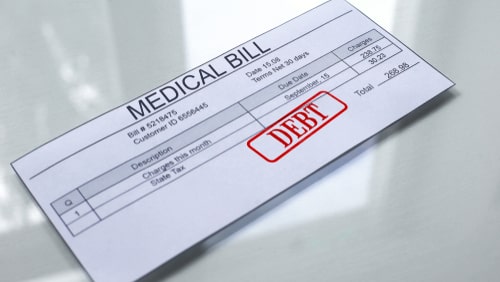 Medical debt is a growing concern for millions of Americans, often leading to immense financial distress and even bankruptcy. If you are looking for a way to alleviate yourself of medical debt and are considering bankruptcy as an option, it is strongly advised you contact a lawyer for assistance. Your lawyer is a legal professional who will help you pursue bankruptcy while also ensuring that your rights and interests are protected throughout the process. While pursuing bankruptcy without a lawyer is possible, it is not recommended. Bankruptcy law can be complex, which makes the assistance of a lawyer that much more important.
Medical debt is a growing concern for millions of Americans, often leading to immense financial distress and even bankruptcy. If you are looking for a way to alleviate yourself of medical debt and are considering bankruptcy as an option, it is strongly advised you contact a lawyer for assistance. Your lawyer is a legal professional who will help you pursue bankruptcy while also ensuring that your rights and interests are protected throughout the process. While pursuing bankruptcy without a lawyer is possible, it is not recommended. Bankruptcy law can be complex, which makes the assistance of a lawyer that much more important.
Understanding Medical Debt
Medical debt is one of the leading causes of bankruptcy in the United States. Despite having health insurance coverage, people may still face significant out-of-pocket expenses, including deductibles, co-pays, and uncovered treatments. In North Carolina, when medical bills accumulate and become unmanageable, bankruptcy can offer a fresh start by discharging or reorganizing the debt.
The Pros and Cons of Chapter 7 Bankruptcy in North Carolina
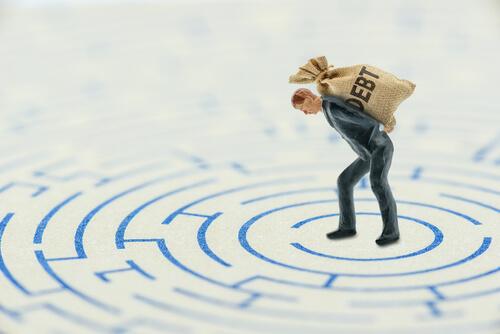 Chapter 7 bankruptcy is a legal option that can help people and businesses in North Carolina struggling with overwhelming debt. Knowing the pros and cons of filing for Chapter 7 bankruptcy is important for any person or business considering using it as a solution to deal with debt-related problems. If you are interested in pursuing Chapter 7 bankruptcy, contact a bankruptcy attorney to help make sure you can make an informed decision about your financial future.
Chapter 7 bankruptcy is a legal option that can help people and businesses in North Carolina struggling with overwhelming debt. Knowing the pros and cons of filing for Chapter 7 bankruptcy is important for any person or business considering using it as a solution to deal with debt-related problems. If you are interested in pursuing Chapter 7 bankruptcy, contact a bankruptcy attorney to help make sure you can make an informed decision about your financial future.
Pros of Chapter 7 Bankruptcy
-
Debt discharge – One of the primary benefits of Chapter 7 bankruptcy is that it allows eligible people in North Carolina to discharge most of their unsecured debts, such as credit card bills and medical expenses. This means you will not be legally obligated to repay those debts, giving you a fresh start.
Will I Lose All My Assets When I File for Bankruptcy?
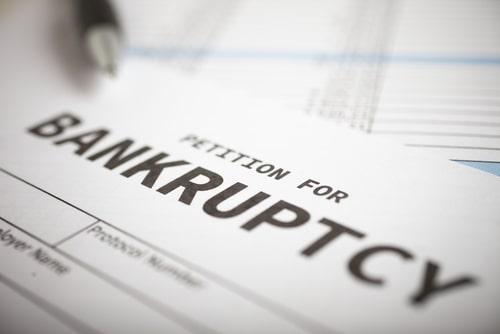 While bankruptcy can help individuals and families eliminate some or all of their debts, many people who consider filing for bankruptcy are concerned about losing their assets, such as their home, car, or personal belongings. While it is true that bankruptcy will sometimes involve a liquidation of assets, the extent to which you may lose your assets will depend on several factors, including the exemptions available to you.
While bankruptcy can help individuals and families eliminate some or all of their debts, many people who consider filing for bankruptcy are concerned about losing their assets, such as their home, car, or personal belongings. While it is true that bankruptcy will sometimes involve a liquidation of assets, the extent to which you may lose your assets will depend on several factors, including the exemptions available to you.
Chapter 7 Bankruptcy: Liquidation
Chapter 7 bankruptcy, also known as liquidation bankruptcy, is the most common form of personal bankruptcy. In a Chapter 7 bankruptcy, the types of assets you own will be evaluated, and your non-exempt assets may be seized and sold to repay your creditors. However, North Carolina bankruptcy laws provide exemptions that protect certain types and amounts of property from being liquidated.
Can I Stop Creditor Harassment by Filing for Bankruptcy?
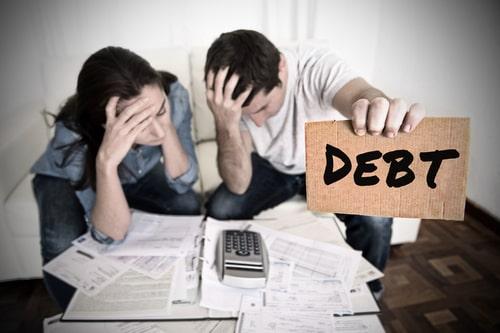 Being in debt is a stressful situation, especially for those who have encountered financial difficulties that have affected their ability to pay what is owed while covering other ongoing expenses. If you are in this situation, you may be dealing with constant calls, letters, and threats from creditors and collection agencies, and you may feel helpless and overwhelmed as you attempt to deal with your financial issues and address your family's needs. Fortunately, there are legal measures you can take to stop creditor harassment, and in some cases, filing for bankruptcy may allow you to eliminate some or all of your debts.
Being in debt is a stressful situation, especially for those who have encountered financial difficulties that have affected their ability to pay what is owed while covering other ongoing expenses. If you are in this situation, you may be dealing with constant calls, letters, and threats from creditors and collection agencies, and you may feel helpless and overwhelmed as you attempt to deal with your financial issues and address your family's needs. Fortunately, there are legal measures you can take to stop creditor harassment, and in some cases, filing for bankruptcy may allow you to eliminate some or all of your debts.
Your Rights Under the Fair Debt Collection Practices Act
The Fair Debt Collection Practices Act (FDCPA) is a federal law that regulates how creditors can contact and communicate with debtors. Under this law, you are protected from harassment by creditors, and you can take steps to address any harassing behavior. The FDCPA allows you to:
When Can a North Carolina Bankruptcy Case Be Dismissed?
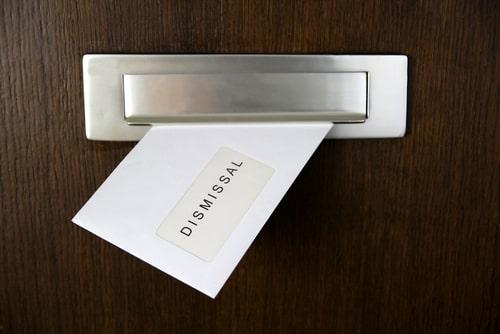 There are many situations where individuals who are in financial distress will need to seek relief from their debts and receive a fresh financial start. This can be done by filing for bankruptcy. However, not all bankruptcy filings automatically lead to successful debt relief. A bankruptcy case can be dismissed if the debtor fails to comply with certain requirements or if the court determines that bankruptcy relief is not the right solution for the debtor's financial situation. By understanding the reasons why a bankruptcy case can be dismissed, debtors can prepare to complete the process successfully. These reasons may include:
There are many situations where individuals who are in financial distress will need to seek relief from their debts and receive a fresh financial start. This can be done by filing for bankruptcy. However, not all bankruptcy filings automatically lead to successful debt relief. A bankruptcy case can be dismissed if the debtor fails to comply with certain requirements or if the court determines that bankruptcy relief is not the right solution for the debtor's financial situation. By understanding the reasons why a bankruptcy case can be dismissed, debtors can prepare to complete the process successfully. These reasons may include:
Non-Compliance with Filing Requirements
To file for bankruptcy, the debtor must complete and submit a number of forms and provide supporting financial documents. Failure to file all required forms and documents in a timely and accurate fashion may result in the dismissal of the bankruptcy case. Additionally, if the debtor fails to attend the mandatory meeting of creditors (known as the "341 meeting"), the court may dismiss the case.
How Can I Improve My Credit After Filing for Bankruptcy?
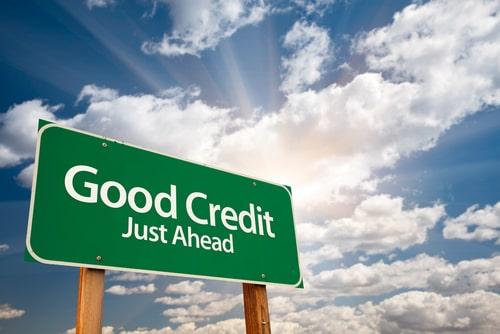 Filing for bankruptcy can be a difficult decision. Acknowledging that your debt has gotten out of control and that you need help to get your finances back on track is not always easy. However, bankruptcy can provide you with a truly fresh start. Eliminating your debts, including large credit card bills, medical bills, or other debts that have stacked up because of issues such as the loss of a job, can take away a huge burden and ensure that your family will be able to avoid serious financial problems in the years to come. Part of the fresh start following bankruptcy involves rebuilding your credit, which will help you qualify for loans or other benefits in the future. As you plan for your life after bankruptcy, there are steps you can take to improve your credit score.
Filing for bankruptcy can be a difficult decision. Acknowledging that your debt has gotten out of control and that you need help to get your finances back on track is not always easy. However, bankruptcy can provide you with a truly fresh start. Eliminating your debts, including large credit card bills, medical bills, or other debts that have stacked up because of issues such as the loss of a job, can take away a huge burden and ensure that your family will be able to avoid serious financial problems in the years to come. Part of the fresh start following bankruptcy involves rebuilding your credit, which will help you qualify for loans or other benefits in the future. As you plan for your life after bankruptcy, there are steps you can take to improve your credit score.
Pay Your Bills On Time
One of the most important things you can do to rebuild your credit is to pay all of your bills before the monthly due date. In addition to making monthly payments on any loans you kept following your bankruptcy, such as a home mortgage or auto loan, you may want to set up reminders or automatic payments for other bills, such as utilities. Making prompt payments on a regular basis will show creditors that they can trust you and that you are responsible with money management—two qualities they look for when considering whether or not someone should receive loan approval. On the other hand, any late payments may cause your credit score to decrease further, affecting your ability to build your credit back up.
5 Common Myths and Misunderstandings About Bankruptcy
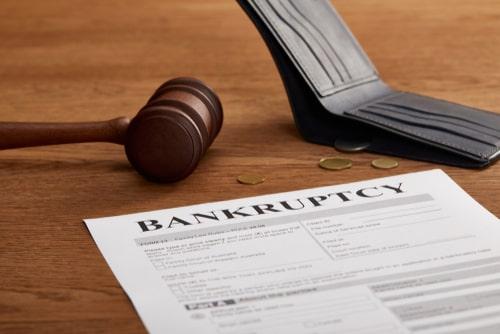 With the rising cost of living and high levels of consumer debt, bankruptcy is becoming a more popular option for Americans who are struggling to make ends meet. However, there are still many misunderstandings related to bankruptcy laws and procedures that can lead people to jump to conclusions and make uninformed decisions. In situations involving large debts, you will want to understand your rights and options, and with the help of an experienced bankruptcy attorney, you can take steps to avoid further problems and regain financial stability. Here are some common bankruptcy-related myths and the truth about how issues related to debt may be handled before, during, and after the bankruptcy process:
With the rising cost of living and high levels of consumer debt, bankruptcy is becoming a more popular option for Americans who are struggling to make ends meet. However, there are still many misunderstandings related to bankruptcy laws and procedures that can lead people to jump to conclusions and make uninformed decisions. In situations involving large debts, you will want to understand your rights and options, and with the help of an experienced bankruptcy attorney, you can take steps to avoid further problems and regain financial stability. Here are some common bankruptcy-related myths and the truth about how issues related to debt may be handled before, during, and after the bankruptcy process:
Myth 1: Bankruptcy Is a Sign of Failure
The truth is that receiving debt relief through bankruptcy is not an indication that you are irresponsible with your finances or that you have failed to properly account for your income, assets, and debts. Most people who pursue bankruptcy do so because of financial issues they have encountered through no fault of their own, such as unexpected medical bills or debts that occurred due to the loss of a job. Bankruptcy offers you the opportunity to get back on track financially. It provides relief from debts you cannot pay and gives you the chance to start fresh. With careful planning, it can be an effective tool in your overall financial strategy and provide much-needed relief in difficult times.


 704-BLOSSOM
704-BLOSSOM

